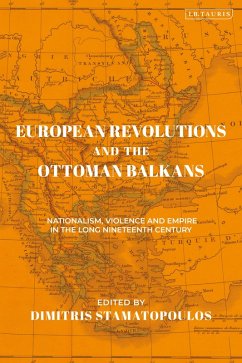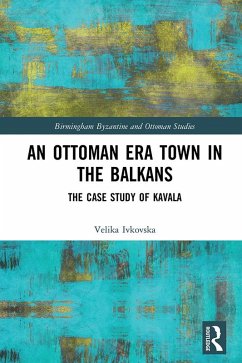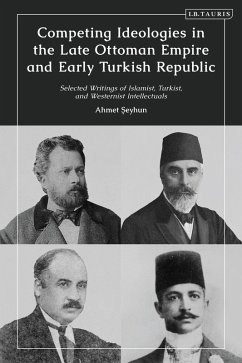
European Revolutions and the Ottoman Balkans (eBook, ePUB)
Nationalism, Violence and Empire in the Long Nineteenth-Century
Redaktion: Stamatopoulos, Dimitris
Versandkostenfrei!
Sofort per Download lieferbar
25,95 €
inkl. MwSt.
Weitere Ausgaben:

PAYBACK Punkte
13 °P sammeln!
The emergence of the Balkan national states in the nineteenth and twentieth centuries has long been viewed through an Orientalist lens, and their birth and evolution traditionally seen by scholars as the effect of the Ottoman Empire's decline. As a result, the role played by the great European revolutions, wars and intellectual developments is often neglected. Rejecting these traditional Orientalist narratives, this work examines Balkan nationalist movements within their broader European historical contexts. Drawing on a range of unused archival research and ranging from the Napoleonic era to ...
The emergence of the Balkan national states in the nineteenth and twentieth centuries has long been viewed through an Orientalist lens, and their birth and evolution traditionally seen by scholars as the effect of the Ottoman Empire's decline. As a result, the role played by the great European revolutions, wars and intellectual developments is often neglected. Rejecting these traditional Orientalist narratives, this work examines Balkan nationalist movements within their broader European historical contexts. Drawing on a range of unused archival research and ranging from the Napoleonic era to the Bolshevik Revolution, contributors variously consider the complex roles played by Europe's internal geo-political ruptures in forming the Balkan states, and demonstrate how the Balkan intelligentsia drew inspiration from, and interacted with, contemporary European thought. Shedding light onto the strong intellectual, political and military interconnections between the regions, this is essential reading for all those studying Balkan and European history, as well as anyone interested in the question of national identity. Published in Association with the British Institute at Ankara













